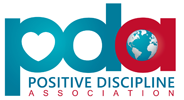Positive Discipline in the News
Beyond the naughty step
IN THE old days parents followed a simple rule: spare the rod and spoil the child. These days less violent forms of discipline are favoured. Supernanny, a television toddler-tamer, recommends the “naughty step”, to which ill-behaved brats are temporarily banished. Yet even this is too harsh, some psychologists say. Putting Howling Henry on the naughty step may interrupt his tantrum; but advocates of “positive discipline” say it does nothing to encourage him to solve his own problems (and thus build character). Some even suggest it may be psychologically damaging.
Positive discipline, which is becoming a grassroots fashion in America, aims to teach children self-control and empathy. Rather than screaming at them to pick up the toys they have strewn on the floor, parents or teachers ask them to suggest their own way of tackling the problem. Adults are encouraged to think harder about the causes of bad behaviour. Families meet regularly to discuss all of the above.
Read More
Stanford News
Researchers at Stanford and UCSF show that kindergarten students are more likely to succeed in school if they have high self-regulation and a supportive classroom environment
In the famous Stanford marshmallow experiment, young children were offered one small marshmallow now, or two marshmallows in 15 minutes if they could resist eating the first one. Children with low self-regulation ate the first marshmallow. In follow-up studies these youngsters tended to grow up to be teenagers with lower SAT scores, higher body mass indexes and higher rates of drug abuse.
Now, a new Stanford study shows that trouble can start as early as kindergarten for children with low self-regulation. The good news is that parents and teachers can help prevent these problems.
Doctoral candidate Ximena Portilla and Assistant Professor Jelena Obradović of the Graduate School of Education, with colleagues at the University of California, San Francisco, studied kindergarten students and classroom environments and then followed those students into first grade. Their study was published in the journal Child Development.
The Positive Discipline Association receives a 5% donation for all purchases made at www.positivediscipline.com |
